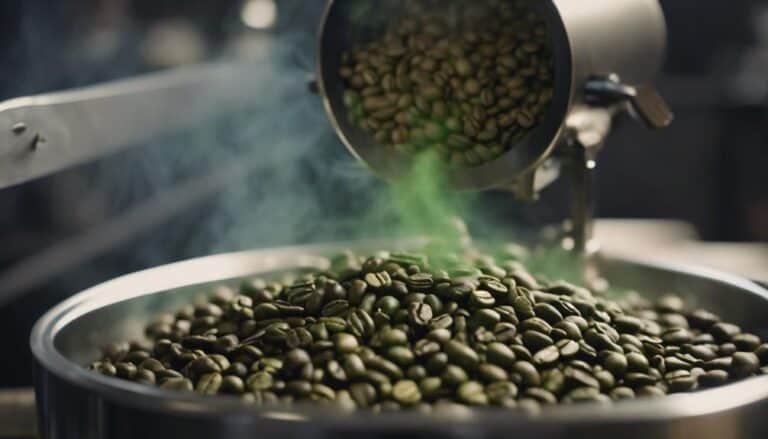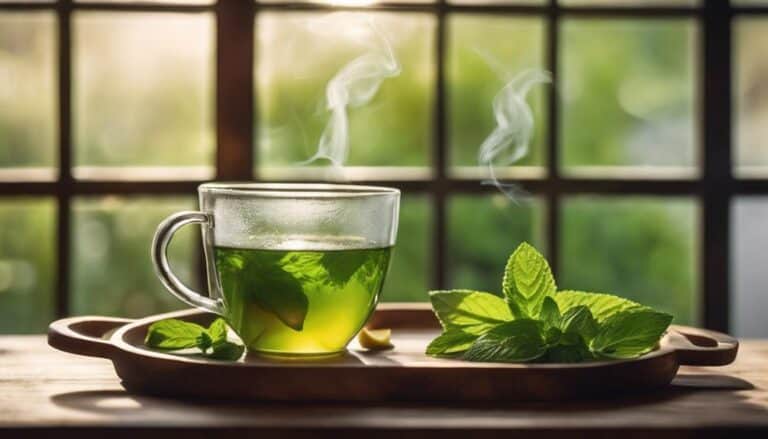To Drink or Not to Drink Expired Tea Bags?
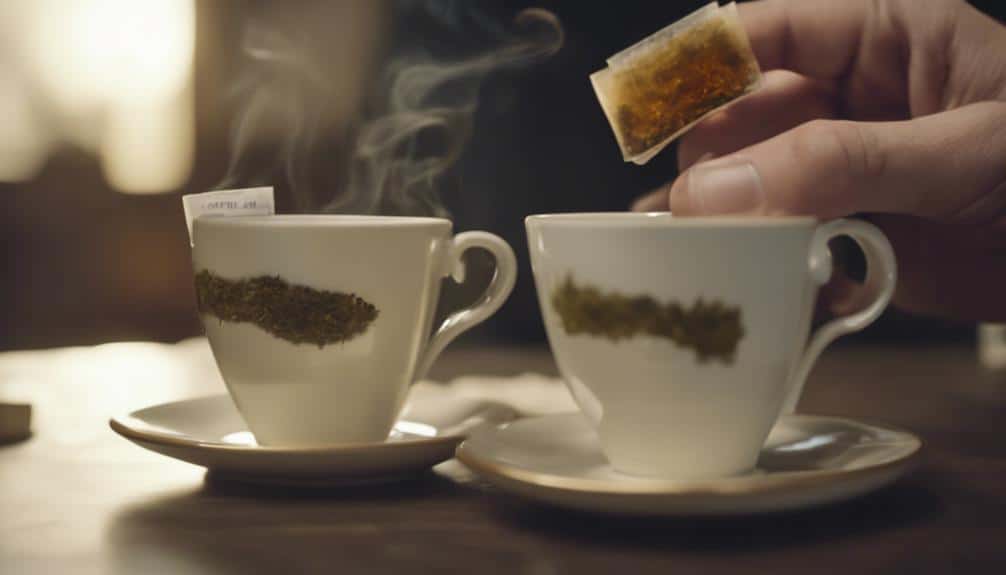
As a tea lover, I recently found myself pondering a common dilemma – should I sip that cup of tea made from an expired tea bag? Surprisingly, the answer is not as straightforward as one might think. It involves a delicate balance between risk and reward, health and taste. So, before you make your next brew, let's take a closer look at the factors to take into account when faced with the age-old question of whether to drink or not to drink expired tea bags.
Risks of Drinking Expired Tea
Drinking expired tea poses significant health risks, primarily due to potential mold or bacterial contamination from improper storage. When tea bags exceed their expiration date, they become a breeding ground for harmful bacteria and mold, increasing the chances of consuming contaminated tea. This can lead to various health risks, including gastrointestinal issues and food poisoning. Symptoms such as diarrhea, nausea, and vomiting may manifest after consuming expired tea. To mitigate these risks, it's important to store tea properly and discard any expired tea bags promptly.
Improper storage conditions create an environment conducive to bacterial and mold growth on tea bags, elevating the health risks associated with drinking expired tea. By ensuring that tea is stored in a cool, dry place away from moisture and sunlight, the chances of contamination are greatly reduced. To safeguard against potential health issues, it's essential to be mindful of the expiration dates on tea bags and prioritize proper storage practices.
Impact on Flavor and Nutrition
When considering the impact on flavor and nutrition of expired tea bags, one must acknowledge the gradual loss of essential oils and nutrients over time.
When tea bags expire, they can lose their vibrant flavor and aromatic qualities as essential oils evaporate, resulting in a less satisfying tea-drinking experience. Additionally, the nutritional value of tea diminishes with age, as vitamins and antioxidants degrade over time.
Oxidation plays a role in this process, causing the tea leaves to lose their freshness and potentially leading to a stale or flat taste in the brewed tea.
While consuming expired tea bags may not pose immediate health risks, it's essential to be mindful of the diminishing benefits regarding flavor and nutrients. To fully enjoy the richness of tea, it's recommended to consume tea bags before they expire to preserve both the taste and healthful properties they offer.
Factors Influencing Tea Shelf Life
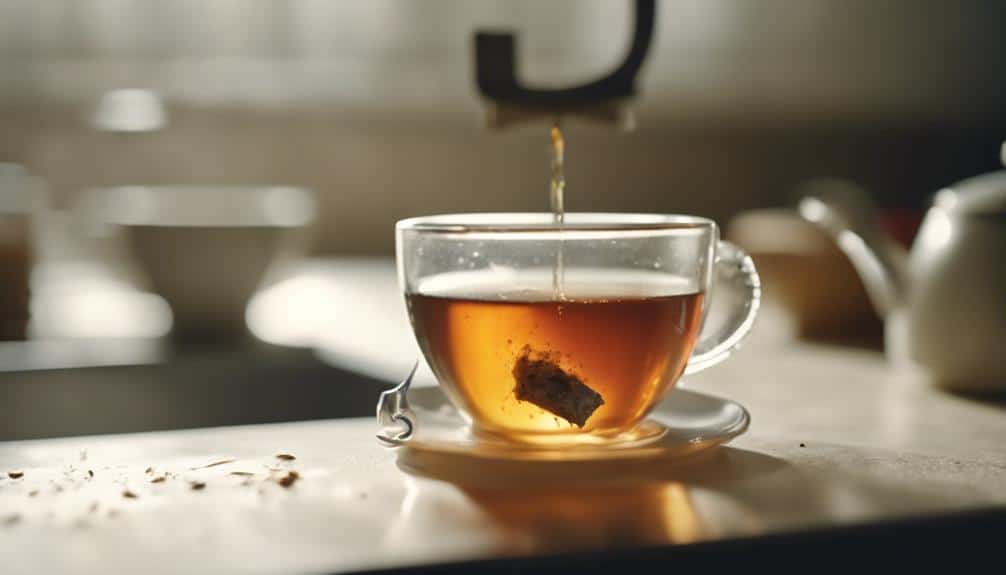
Considering the various types of tea available and the environmental factors affecting their preservation, understanding the shelf life of tea bags is important for maintaining peak quality and flavor.
Tea shelf life can vary greatly depending on the type of tea. Black tea, thanks to its oxidation processes, tends to last longer than green tea. Factors such as moisture, light, and temperature play a crucial role in determining how long tea bags remain fresh.
Herbal teas and flavored teas typically have shorter shelf lives compared to pure teas. Surprisingly, Pu-erh tea is an exception, as it can actually improve with age and last for several years, with certain varieties aged for up to 50 years.
To ensure the best longevity for your teas, proper storage is essential. Storing tea bags in airtight containers away from light and moisture will help preserve their flavor and aroma, extending their shelf life and maintaining their quality.
Identifying Expired Tea Bags
When determining the freshness of tea bags, one should carefully inspect for signs such as a musty odor, flavor alterations, or visible mold. Fresh tea bags typically have intact packaging and exude a vibrant aroma. Changes in texture, smell, and taste can all indicate that the tea bags have expired. Proper storage plays an important role in preventing tea bags from spoiling prematurely. Below is a table summarizing key indicators of expired tea bags:
| Indicator | Description |
|---|---|
| Musty Smell | A damp or stale odor that is not present in fresh tea |
| Visible Mold | Mold growth on or around the tea bag or packaging |
| Dull Flavor | Loss of the tea's characteristic taste and vibrancy |
| Texture Change | Tea leaves may clump together or feel different |
Safety Tips for Consuming Expired Tea
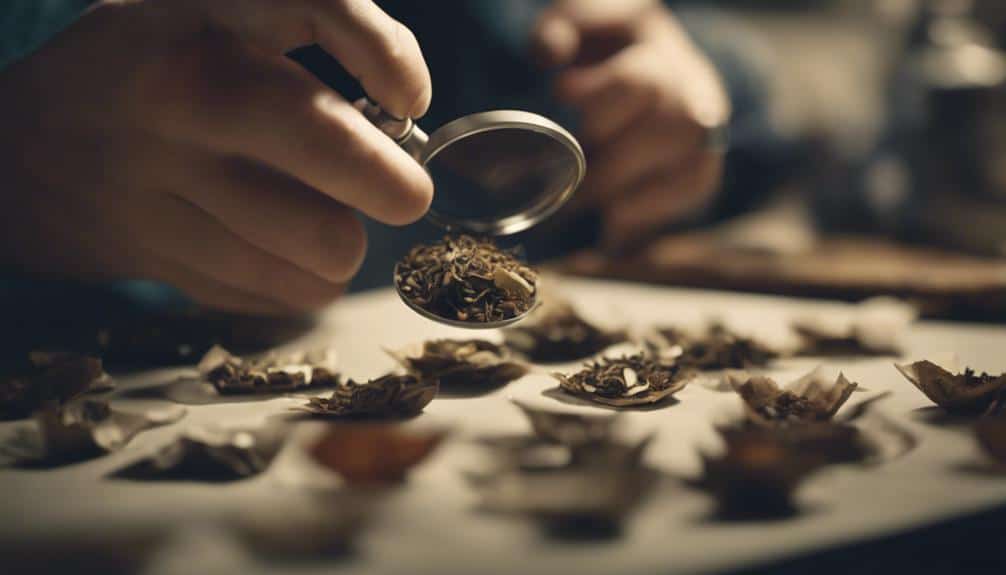
To ensure safety when consuming expired tea, one should thoroughly inspect for any signs of spoilage before brewing. It's crucial to pay close attention to the appearance and smell of the tea bags to determine if they're still safe to use. Here are some safety tips to keep in mind:
- Check for any off smells: If the tea bags emit a musty or sour odor, it's best to discard them to avoid any potential health risks.
- Look for mold: Any signs of mold growth on the tea bags indicate spoilage and shouldn't be consumed.
- Inspect for discoloration: Discoloration in the tea bags could be a sign of deterioration, impacting both flavor and nutritional value.
Avoiding Mold and Bacteria
Mold and bacteria pose serious health risks if present on expired tea bags due to improper storage conditions. Essential storage of tea bags is necessary to prevent mold growth and bacterial contamination.
Storing tea bags in airtight containers, away from light, heat, and moisture, can help maintain their freshness and quality, reducing the risk of mold development. Consuming tea contaminated with mold or bacteria can result in gastrointestinal issues and food poisoning, leading to potential health complications.
To avoid these risks, it's vital to inspect tea bags for any signs of mold, such as visible spores, discoloration, or unusual odors before use. Proper handling and storage of tea bags are key factors in preventing contamination and potential health hazards.
Trusting Your Senses
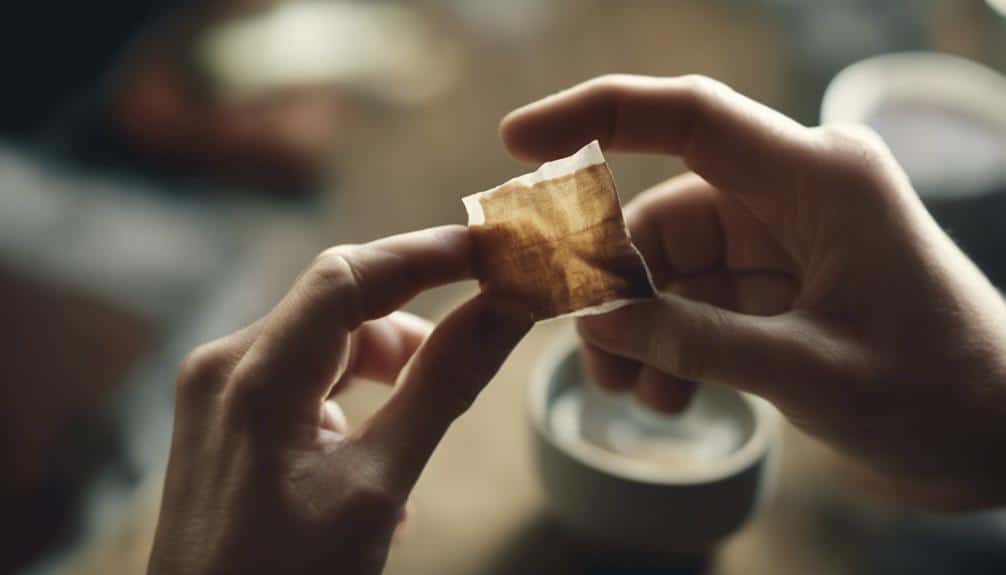
Relying on your senses is crucial when evaluating expired tea bags for any indications of spoilage. When appraising the quality of tea bags past their prime, trust your senses to guide you in determining whether they're safe to consume:
- Unusual Smells: Give the tea bags a sniff. A musty or sour smell could indicate spoilage and potential contamination.
- Discoloration: Look closely at the tea bags. Mold growth or discoloration is a clear sign of spoilage and shouldn't be brewed.
- Off Taste: Brew tea from the expired tea bags and pay attention to the taste. If it tastes unusual or off, it's best to discard the tea.
Proper storage practices can greatly impact the shelf life of tea bags, helping to prevent premature spoilage. By staying attentive to any unusual smells, discoloration, or off tastes, you can guarantee a safe and enjoyable tea-drinking experience.
Conclusion
To wrap up, it's important to be mindful of the risks associated with drinking expired tea bags, as they can harbor harmful bacteria and mold that may lead to health complications.
Paying attention to signs of tea expiration, such as changes in flavor and texture, is essential for ensuring a safe and enjoyable tea-drinking experience.
By following safety tips and trusting your senses, you can avoid potential health risks and savor the true essence of a fresh cup of tea.
